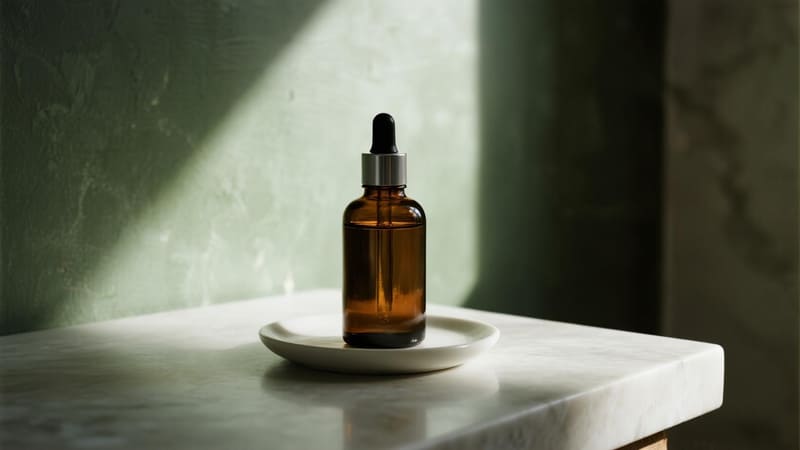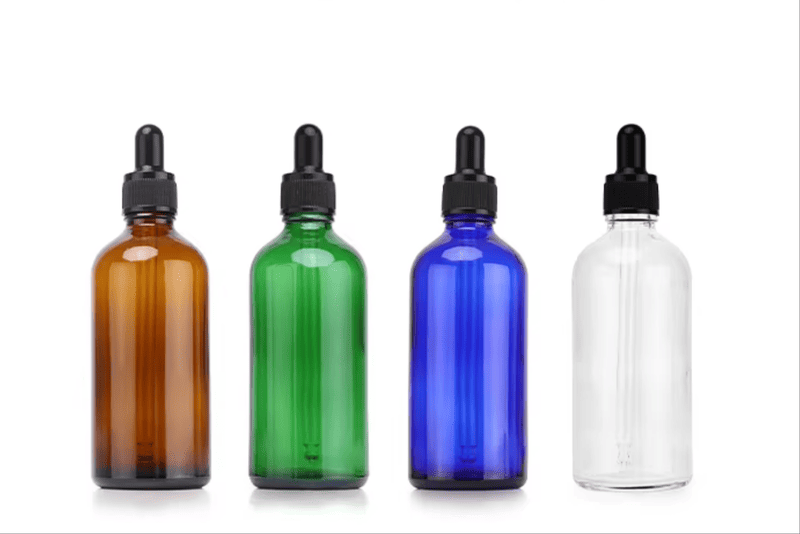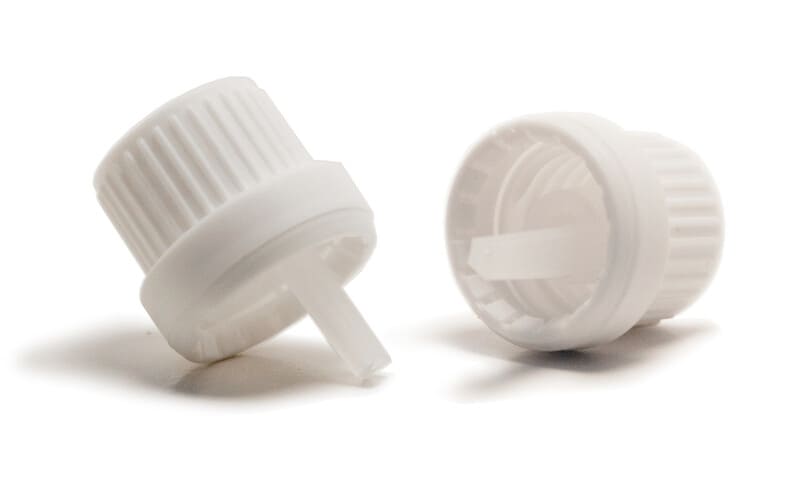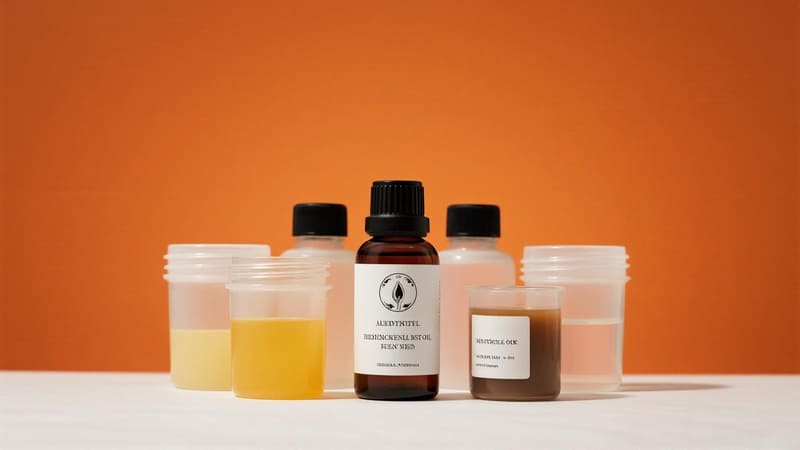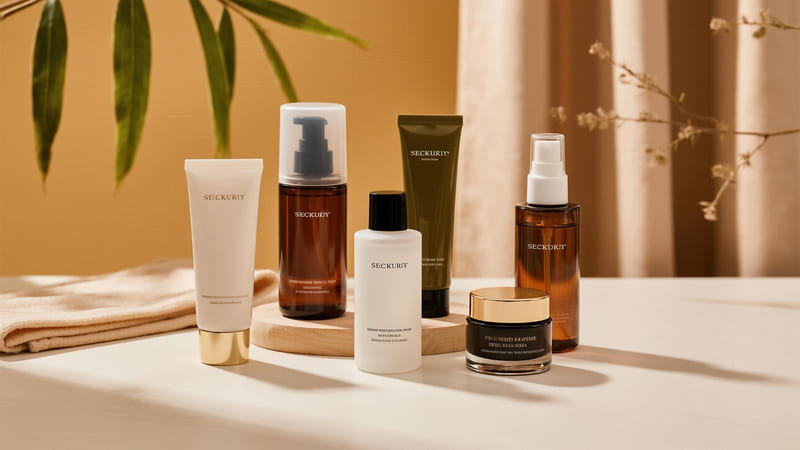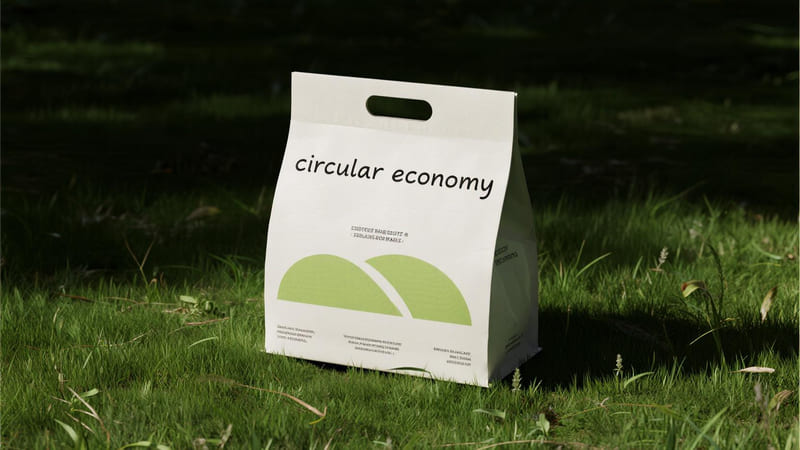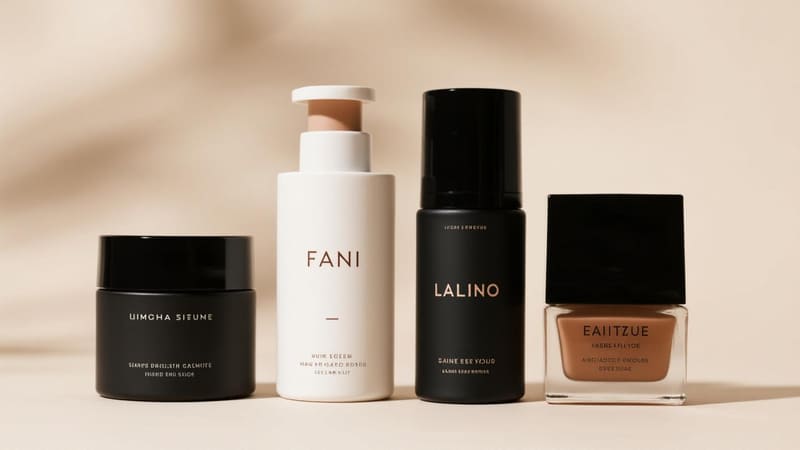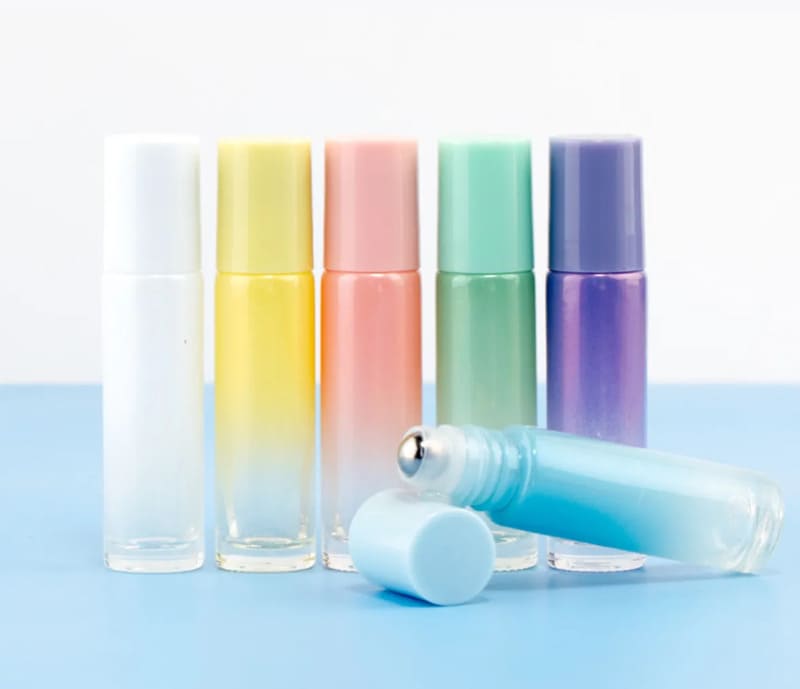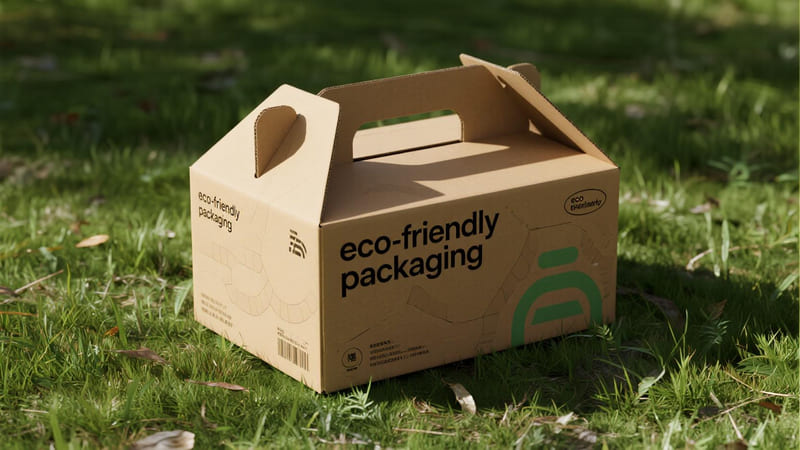When you browse for essential oils, you’ll notice one striking consistency: they are almost exclusively packaged in glass bottles, typically in shades of amber or cobalt blue. This isn’t a mere aesthetic choice or a nod to tradition; it is an absolute necessity for preserving the quality and safety of the oil.
Yes, pure, undiluted essential oils absolutely need to be in glass bottles. Essential oils are highly concentrated and potent, containing compounds that can degrade, dissolve, or react with plastic. Glass is inert and impermeable, ensuring the oil’s chemical stability, purity, and potency are protected from both the packaging itself and from environmental factors like oxygen.
As a packaging manufacturer with ShineTop for over two decades, we understand the critical importance of material compatibility. While we produce a vast range of plastic packaging for many cosmetics, we know that for a product as potent as pure essential oil, glass is the only appropriate choice for primary storage. Let’s explore exactly why this is the case.
Why is Glass Essential for Storing Pure Essential Oils?
The chemical nature of essential oils makes them uniquely unsuitable for most other common packaging materials, especially plastic. Using the wrong container can ruin the oil and even the container itself.
Glass is essential for storing pure essential oils because its chemical inertness prevents it from reacting with the volatile aromatic compounds. Unlike plastic, glass does not dissolve, leach harmful chemicals, or absorb the oil’s aroma. It provides a stable, non-reactive environment that is crucial for maintaining the oil’s therapeutic properties and complex scent profile.
Here are the critical reasons why glass is the non-negotiable standard:
-
Chemical Inertness (Non-Reactive):
- Essential oils are complex mixtures of potent organic compounds (terpenes, esters, phenols, etc.). Some of these, especially citrus oils (like lemon or orange), are powerful solvents.
- These compounds can literally dissolve or break down the structure of many plastics. This process can cause the plastic to warp, pit, or even melt over time.
- Glass is non-reactive and will not be damaged by even the most potent essential oils.
-
Preventing Leaching:
- When plastic degrades from contact with essential oils, it can leach harmful chemicals (like plasticizers, BPA, or phthalates) into the oil.
- This contaminates the essential oil, rendering it impure, potentially toxic, and unsafe for any application (diffusing, topical use, etc.).
- Glass does not leach any substances, ensuring the oil remains 100% pure.
-
Preserving Purity and Aroma:
- Plastic is porous on a microscopic level and can absorb the aroma and some of the delicate chemical constituents of the essential oil over time, weakening its scent and therapeutic value.
- Glass is impermeable and non-porous, so it perfectly preserves the full, complex aromatic profile of the oil as the producer intended.
-
Impermeability to Oxygen:
- Glass provides an excellent barrier against oxygen. Exposure to oxygen (oxidation) can degrade essential oils, causing them to spoil, lose their potency, and change their scent. A well-sealed glass bottle minimizes this risk.
Why Must the Glass Bottles Be Dark?
It’s not enough for the bottle to be made of glass; for proper storage, the color of the glass is equally important.
Essential oil bottles must be dark (typically amber or cobalt blue) to protect the oil from degradation caused by ultraviolet (UV) light. UV rays from sunlight or even some artificial lighting can accelerate oxidation and alter the chemical structure of the essential oil, reducing its shelf life and therapeutic efficacy.
- Amber Glass: This is the most common color for a reason. Amber glass provides excellent protection by filtering out the full spectrum of UV light, as well as blue light.
- Cobalt Blue Glass: Also offers very good protection from UV light.
- Miron Violet Glass: A high-end, premium option that blocks the complete spectrum of visible light except for violet and UV-A light. It’s believed to offer the ultimate protection and preservation for natural products.
- Clear Glass: While sometimes used for display or for perfume oils that are less sensitive or meant for quicker use, clear glass offers no protection from light and is not recommended for long-term storage of pure, therapeutic-grade essential oils.
What About Plastic Components (Caps, Orifice Reducers)?
You might notice that while the bottle is glass, the cap and the dropper insert (orifice reducer) are plastic. How does this work?
While the main bottle must be glass, small plastic components like caps and orifice reducers are generally considered safe because they are made from specific, highly chemical-resistant plastics (like HDPE or PP) and have limited, intermittent contact with the oil, especially when the bottle is stored upright. The risk of degradation is minimal compared to storing the entire volume of oil in a plastic container.
- Material Choice: The plastics used for these components are carefully selected. Polypropylene (PP) and High-Density Polyethylene (HDPE) are common choices as they have a high resistance to the chemicals found in essential oils.
- Limited Contact: When the bottle is stored upright (as it always should be), the bulk of the oil is only in contact with the inert glass. The plastic parts only have minimal, brief contact with the oil during dispensing.
- Rubber Bulbs on Droppers: The rubber bulb on a glass dropper top should ideally not come into direct, prolonged contact with the pure oil. Over time, the oil vapors can cause the rubber to degrade, become sticky, or break down. This is why it’s important not to store bottles with droppers on their side and to check the bulb’s condition periodically.
Can You Ever Use Plastic for Essential Oils?
Given the strong case against it, are there any exceptions where plastic might be acceptable?
Plastic should never be used for storing pure, undiluted essential oils. However, it may be acceptable for products where essential oils are heavily diluted in a carrier substance, such as in lotions, creams, or some room sprays. In these cases, a chemically resistant plastic like PET or HDPE is used, and thorough compatibility testing between the final formula and the plastic is essential.
Acceptable Uses of Plastic for EO-Containing Products:
- DIY Inhalers: Small plastic personal inhalers are safe because the essential oil is applied to a cotton wick and does not have prolonged contact with the plastic casing.
- Diluted Rollerballs: While glass is preferred, some rollerball fitments and bottles are made of PP or HDPE and are designed for use with diluted oils (e.g., 2-10% essential oil in a carrier oil like jojoba or coconut oil).
- Lotions, Creams, Shampoos: In these products, the essential oils are present in a very low concentration (usually 1-2% or less) and are emulsified within the larger formula, which buffers their direct impact on the plastic container. My client Anna from Thailand uses essential oils in her natural cosmetics, which are safely packaged in the PCR PET bottles we supply at ShineTop.
- Room Sprays: Again, the essential oils are highly diluted in a base of water and a solubilizer or alcohol. PET bottles are often used for these.
The key takeaway is dilution. The potent, solvent-like properties of essential oils are significantly reduced when they are properly diluted, making them compatible with a wider range of packaging materials. However, for the pure, concentrated oils themselves, glass remains the only safe and effective choice.
Conclusion
The rule is simple and crucial: pure essential oils must be stored in dark glass bottles. This practice is not based on aesthetics but on the fundamental chemistry of the oils themselves. Glass provides the necessary inert, impermeable, and light-protected environment to preserve the oil’s delicate composition, ensuring its potency, purity, and safety. Any other material, especially plastic, risks degrading both the oil and the container. By understanding and respecting this principle, you ensure that you are getting the full, unadulterated benefit of your essential oils.

